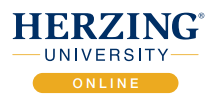ACLS vs Healthcare Documentation Specialist

Want personalized recommendations?
Let's match you to the right program

In today's rapidly evolving job market, there are countless career options to choose from. Two popular vocational training programs that offer promising career paths are ACLS (Advanced Cardiovascular Life Support) and Healthcare Documentation Specialist. Both of these fields are in high demand and provide opportunities for growth and advancement. In this blog post, we will explore the differences between ACLS and Healthcare Documentation Specialist, including their job descriptions, education and training requirements, and career outlooks.
Article continues after recommendations
Recommended for you
What is ACLS and Healthcare Documentation Specialist?
ACLS stands for Advanced Cardiovascular Life Support. It is a specialized training program that provides healthcare professionals with the knowledge and skills needed to respond to cardiac emergencies. ACLS certification is typically required for healthcare professionals who work in critical care units, emergency departments, and other areas where cardiac emergencies are common. This training equips individuals with the ability to recognize and respond to life-threatening situations, including cardiac arrest, stroke, and other cardiovascular emergencies.
On the other hand, a Healthcare Documentation Specialist is responsible for transcribing and editing medical reports dictated by healthcare providers. This role requires a strong attention to detail and the ability to accurately interpret and document medical terminology. Healthcare Documentation Specialists play a crucial role in maintaining accurate patient records and ensuring the continuity of care. This profession is often referred to as medical transcription.
Difference between ACLS and Healthcare Documentation Specialist
While both ACLS and Healthcare Documentation Specialist are integral parts of the healthcare industry, they are distinct in terms of their job responsibilities and training requirements. Here are the key differences between these two vocations:
-
Job Responsibilities: ACLS professionals are trained to respond to cardiac emergencies and provide life-saving interventions. They may perform tasks such as cardiopulmonary resuscitation (CPR), defibrillation, and administering medications. Healthcare Documentation Specialists, on the other hand, focus on transcribing and editing medical reports. They ensure that medical records are accurate, complete, and compliant with industry standards.
-
Training Requirements: ACLS certification requires healthcare professionals to undergo specialized training, typically offered by organizations such as the American Heart Association. This training includes both theoretical knowledge and hands-on practice in simulated cardiac emergency scenarios. Healthcare Documentation Specialists typically complete a vocational training program or an associate's degree in medical transcription. They also need to possess a strong understanding of medical terminology and excellent typing and listening skills.
-
Working Environment: ACLS professionals often work in high-stress environments such as emergency departments and critical care units. They may be required to work long hours and be available on-call. Healthcare Documentation Specialists, on the other hand, often work in office settings or remotely. They have more flexibility in terms of their work schedule and may have the option to work from home.
-
Career Advancement: ACLS professionals have the opportunity to advance their careers by pursuing additional certifications or specializing in a specific area of cardiac care. They may become ACLS instructors or move into leadership roles within their organizations. Healthcare Documentation Specialists can also advance their careers by gaining experience and expertise in medical transcription. They may become supervisors or move into roles such as medical coding or medical records management.
ACLS vs Healthcare Documentation Specialist: Job Description
ACLS and Healthcare Documentation Specialists have distinct job descriptions that reflect the nature of their roles within the healthcare industry. Here is a closer look at the job descriptions for each profession:
ACLS Job Description
- Recognizing and responding to cardiac emergencies
- Performing cardiopulmonary resuscitation (CPR)
- Administering medications to stabilize patients
- Operating defibrillators and other life-saving equipment
- Collaborating with a team of healthcare professionals to provide comprehensive care
- Documenting interventions and patient responses
Healthcare Documentation Specialist Job Description
- Transcribing and editing medical reports dictated by healthcare providers
- Ensuring accuracy, completeness, and compliance with industry standards in medical records
- Reviewing and correcting errors in transcribed reports
- Maintaining patient confidentiality and data security
- Collaborating with healthcare providers to clarify dictation and ensure accuracy
- Adhering to strict turnaround times for completing medical reports
ACLS vs Healthcare Documentation Specialist: Education and Training
Education and training requirements vary for ACLS and Healthcare Documentation Specialists. Here is an overview of the education and training needed for each profession:
ACLS Education and Training
- Healthcare professionals such as nurses, doctors, and paramedics are typically eligible for ACLS training.
- ACLS certification courses are offered by organizations such as the American Heart Association.
- The training includes both theoretical knowledge and hands-on practice in simulated cardiac emergency scenarios.
- ACLS certification is typically valid for two years, and professionals need to renew their certification through refresher courses.
Healthcare Documentation Specialist Education and Training
- Healthcare Documentation Specialists typically complete a vocational training program or an associate's degree in medical transcription.
- These programs provide training in medical terminology, anatomy and physiology, and transcription skills.
- Students learn to use transcription software and become familiar with industry standards and guidelines.
- Some programs may also include hands-on experience or internships to provide practical training.
Get courses selected just for you
Try our powerful search engine
Article continues after recommendations
ACLS vs Healthcare Documentation Specialist: Career Outlook and Salary
Both ACLS and Healthcare Documentation Specialist offer promising career prospects in the healthcare industry. Here is a closer look at the career outlook and salary potential for each profession:
ACLS Career Outlook and Salary
- The demand for healthcare professionals with ACLS certification is expected to grow as the population ages and the prevalence of cardiovascular diseases increases.
- ACLS professionals can work in a variety of healthcare settings, including hospitals, clinics, and ambulatory care centers.
- The median annual wage for registered nurses, who often hold ACLS certification, was $75,330 in May 2020, according to the Bureau of Labor Statistics.
Healthcare Documentation Specialist Career Outlook and Salary
- The demand for Healthcare Documentation Specialists is expected to remain stable as healthcare providers continue to rely on accurate and comprehensive medical records.
- Healthcare Documentation Specialists can work in hospitals, clinics, transcription companies, or remotely from home.
- The median annual wage for Medical Transcriptionists, which includes Healthcare Documentation Specialists, was $34,770 in May 2020, according to the Bureau of Labor Statistics.
Final Thoughts
Choosing a vocational training program that aligns with your interests and career goals is an important decision. ACLS and Healthcare Documentation Specialist offer unique opportunities within the healthcare industry. While ACLS professionals focus on providing life-saving interventions during cardiac emergencies, Healthcare Documentation Specialists ensure the accuracy and completeness of medical records. Consider your strengths, interests, and future aspirations when deciding between these two rewarding career paths.
Dreambound's programs are available in different locations. Explore the following blogs for comprehensive details on these two vocations, including their requirements and guidelines on joining:

Harold Roldan is a Growth team member at Dreambound. With a background in IT, he works with data and automation to improve team efficiency and workflows. He spends his free time playing musical instruments or studying data, computers, and technology.



